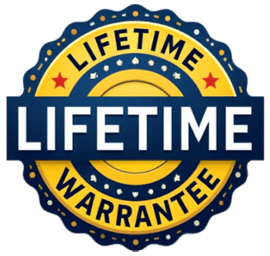

Understanding the Impact of Carbon Filters on Water Quality
Water quality is a crucial aspect of our daily lives, influencing everything from our health to the taste of our beverages. One of the most effective methods for improving water quality is through the use of carbon filters. These filters have gained popularity due to their ability to remove a wide range of contaminants, making them a staple in various water filtration systems. In this article, we will explore the mechanisms of carbon filters, the contaminants they target, and the benefits they provide to ensure clean and safe drinking water.
What Are Carbon Filters?
Carbon filters, specifically activated carbon filters, are designed to purify water by removing impurities and contaminants. They are made from carbon sources such as coconut shells, coal, or peat, which are processed to create a porous structure. This structure significantly increases the surface area of the carbon, allowing it to adsorb a larger quantity of contaminants.
The Activation Process
The activation of carbon involves heating the raw material in an oxygen-free environment. This process creates numerous tiny pores within the carbon, enhancing its ability to trap impurities. The result is a highly effective filtration medium that can significantly improve water quality.
Types of Carbon Filters
There are two primary types of carbon filters: granular activated carbon (GAC) filters and carbon block filters.
Granular Activated Carbon (GAC) Filters: These filters consist of loose granules of activated carbon. They are often used as polishing filters to enhance the taste and odor of water.
Carbon Block Filters: These filters are made from compressed activated carbon, providing a denser filtration medium. They are effective at removing smaller contaminants and are commonly used in reverse osmosis systems.
How Do Carbon Filters Work?
The effectiveness of carbon filters lies in their ability to remove contaminants through a process known as adsorption. This process involves the attraction of contaminants to the surface of the activated carbon, where they are held in place.
The Adsorption Mechanism
When water passes through a carbon filter, contaminants are drawn to the carbon surface due to various forces, including Van der Waals forces and electrostatic attraction. This mechanism allows carbon filters to effectively trap a wide range of impurities, including chlorine, volatile organic compounds (VOCs), and heavy metals.
Chemical Reactions
In addition to adsorption, some carbon filters can also catalyze chemical reactions that alter the composition of certain contaminants. For instance, catalytic carbon can convert chlorine into harmless chloride ions, further enhancing water quality.
What Contaminants Do Carbon Filters Remove?
Carbon filters are renowned for their ability to remove a variety of contaminants from water. Here are some of the most common impurities that these filters can effectively target:
Chlorine and Chlorine Byproducts
Chlorine is widely used in municipal water treatment to disinfect water. However, it can impart an unpleasant taste and odor. Carbon filters can remove up to 95% of chlorine, improving the overall quality of drinking water. Additionally, they can eliminate harmful byproducts formed when chlorine reacts with organic matter, such as trihalomethanes (THMs).
Volatile Organic Compounds (VOCs)
VOCs are a group of organic chemicals that can evaporate into the air and contaminate water sources. These compounds are often found in household products, pesticides, and industrial waste. Carbon filters are highly effective at adsorbing VOCs, ensuring cleaner and safer drinking water.
Heavy Metals
Certain carbon filters, particularly those with a smaller micron rating, can also reduce heavy metals such as lead and mercury. This is crucial for protecting public health, as heavy metal contamination can lead to serious health issues over time.
Pharmaceuticals and Personal Care Products
Recent studies have shown that activated carbon filters can remove pharmaceutical residues and personal care products from water. These contaminants can enter water supplies through improper disposal and agricultural runoff, posing risks to both human health and aquatic ecosystems.
Benefits of Using Carbon Filters
The advantages of incorporating carbon filters into your water treatment system are numerous. Here are some key benefits:
Improved Taste and Odor
One of the most immediate benefits of using carbon filters is the enhancement of water taste and odor. By removing chlorine and other unpleasant compounds, carbon filters provide a more refreshing drinking experience.
Health Protection
By effectively removing harmful contaminants, carbon filters contribute to better health outcomes. Reducing exposure to chlorine, heavy metals, and VOCs can lower the risk of various health issues, including respiratory problems and long-term chronic diseases.
Cost-Effective Solution
Carbon filters are a cost-effective option for improving water quality. They require minimal maintenance and can last for several months, depending on usage and water quality. This makes them an economical choice for households and businesses alike.
Environmental Benefits
Using carbon filters can also have positive environmental impacts. By reducing the need for bottled water, these filters help decrease plastic waste and promote sustainable water consumption practices.
Maintenance and Replacement of Carbon Filters
To ensure optimal performance, regular maintenance and timely replacement of carbon filters are essential. Here are some guidelines to follow:
Replacement Frequency
The lifespan of a carbon filter can vary based on factors such as water quality and usage. Generally, it is recommended to replace carbon filters every 6 to 12 months. However, if you notice a decline in water quality or taste, it may be time for a replacement.
Proper Installation
For both point-of-use and whole-house carbon filter systems, proper installation is crucial. It is advisable to consult with a licensed plumber or water conditioning contractor to ensure that the system is set up correctly and functions effectively.
Testing Water Quality
Regular testing of water quality can help determine the effectiveness of your carbon filter system. Home water testing kits are available and can provide valuable insights into the presence of contaminants in your water supply.
Types of Carbon Filter Systems
When considering carbon filters, it’s important to understand the different systems available. Here are two primary types:
Point-of-Use (POU) Filters
POU filters are installed at specific locations, such as under the sink or at the faucet. They treat water right before it is used, ensuring that drinking and cooking water is free from contaminants. Common examples include pitcher filters and faucet-mounted filters.
Whole-House Filters
Whole-house carbon filters are installed at the main water supply line, treating all water entering the home. This system ensures that every tap, shower, and appliance receives filtered water, providing comprehensive protection against contaminants.
Conclusion
Carbon filters play a vital role in enhancing water quality by effectively removing a wide range of contaminants. Their ability to improve taste and odor, protect health, and provide a cost-effective solution makes them an essential component of modern water treatment systems. By understanding how carbon filters work and the benefits they offer, consumers can make informed decisions about their water filtration needs. Regular maintenance and timely replacement of filters will ensure that you continue to enjoy clean, safe, and great-tasting water for years to come.
